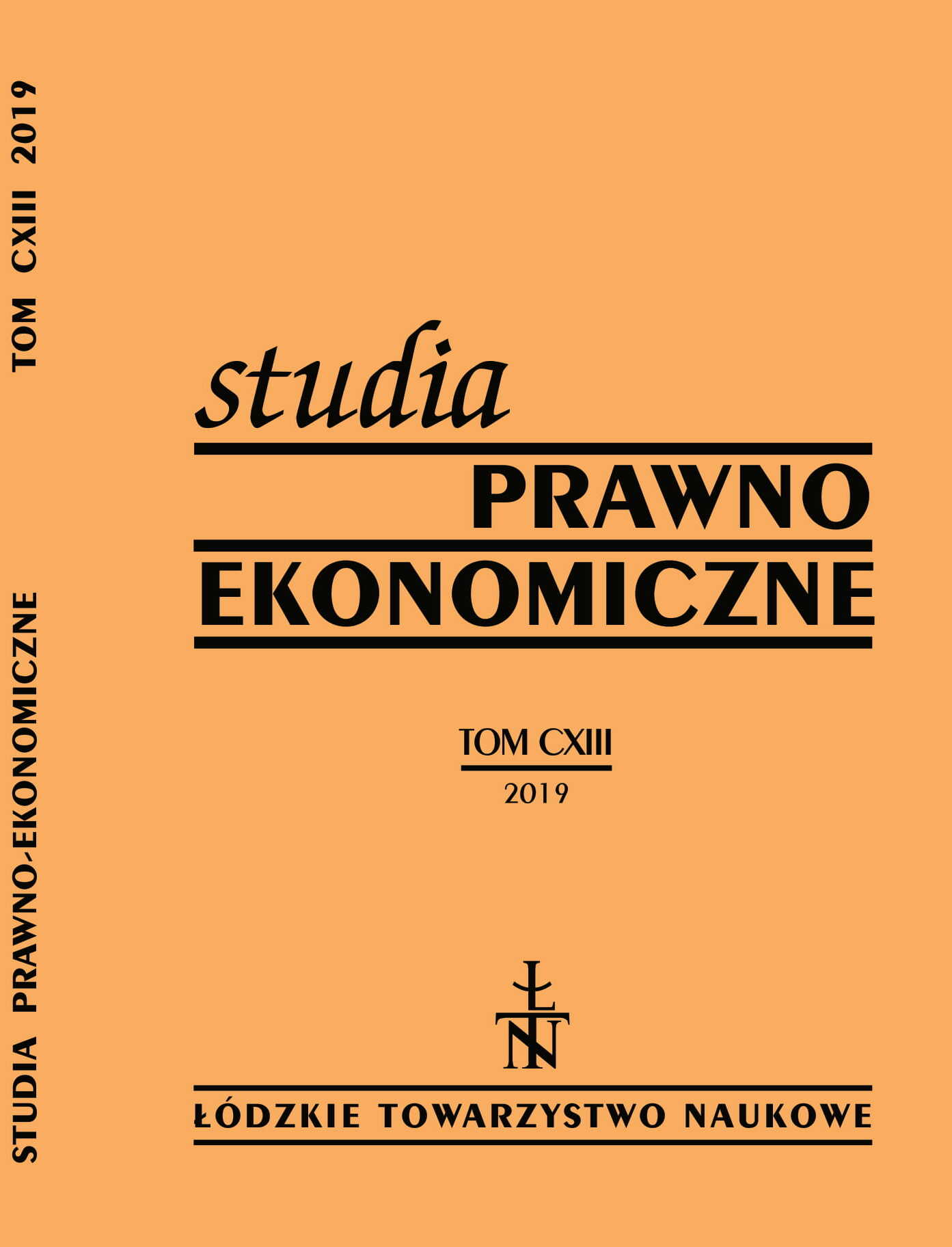The budgetary, social, and economic importance of tax on goods and services in Poland
DOI:
https://doi.org/10.26485/SPE/2019/113/19Keywords:
taxes, tax on goods and services, properties of indirect taxes, tax functions, tax base, tax costsAbstract
Background: The tax on goods and services applicable in Poland was designed and introduced into the tax system in the 1990s, i.e., during the period of economic transformation. The economic conditions of that time were conducive to the implementation of instruments accelerating the pace of transition from a socialized economy to a market economy. During the period of its application, it was subject to numerous amendments in order to adapt it to market economy conditions and the principles resulting from modern tax theories or to implement international agreements and Community law. The consequence of numerous tax changes is the erosion of tax law, an increase in tax costs, and instability. For this reason, both practitioners and scientists point to the need to reform the tax system, and thus also the tax on goods and services. In this context, it is reasonable to consider how to determine its importance in the budgetary, social, and economic dimensions.
Research purpose: This article aims to define the importance of the tax on goods and services in budgetary, economic and social terms. A research hypothesis was formulated according to which the tax on goods and services is an important source of budgetary revenue, while its nature makes it an effective instrument of state intervention in social and economic life. The paper presents the functions of taxes in a market economy, the concept of the state, and the properties of the tax in question. Using statistical data, the significance of the tax under scrutiny as a source of budgetary revenue was determined. The indirect nature of the tax was used as a determinant of its importance in social terms, while its economic significance was presented based on its stimulus nature.
Methods: The methods used in the study included analysing legal acts and relevant literature in conjunction with the deduction method.
Conclusions: The tax on goods and services is an important source of state budgetary revenue and, to a limited extent, it can be used as an instrument of state intervention in economic and social processes.
Downloads
References
Ustawa z dnia 29 sierpnia 1997 r. Ordynacja podatkowa (Dz.U. z 2019 r., poz. 900 t.j.).
Ustawa z dnia 11 marca 2004 r. tj. z dnia 9 listopada 2018 r. o podatku od towarów i usług (Dz.U. z 2018 r., poz. 2174 t.j.).
Adamczyk Adam, Czyż Marek, Wydajność fiskalna podatku dochodowego od osób fizycznych w Polsce, Zeszyty Naukowe Wyższej Szkoły Bankowej w Poznaniu 2015/5, Poznań, s. 149–158.
Adamczyk Adam, Kluzek Marta, Stopień realizacji zasady neutralności podatku VAT w państwach Unii Europejskiej – próba kwantyfikacji, Studia Ekonomiczne. Zeszyty Naukowe Uniwersytetu Ekonomicznego w Katowicach 2018/358, s. 9–22.
Bernal Arkadiusz, Do Small Value-Added Tax Rate Decreases on Groceries Imply Lower Prices for Consumers?, Eastern European Economics 2018/56, Poznań, s. 81–98.
Dzwonkowski Henryk, Ordynacja podatkowa. Komentarz, C.H. Beck, Warszawa 2019.
Felis Paweł, Wybrane współczesne społeczno-ekonomiczne uwarunkowania reformy systemu podatkowego. Dylematy reformy systemu podatkowego w Polsce, Wydawnictwo Sejmowe, Warszawa 2016.
Grądalski Feliks, Teoretyczne aspekty reformowania systemu podatkowego – zarys modelu referencyjnego dla Polski, w: Janusz Ostaszewski (red.), O nowy ład podatkowy w Polsce SGH, Warszawa 2007.
Grycuk Adrian, Podatek CIT jako narzędzie polityki gospodarczej, INFOS nr 4, Biuro Analiz Sejmowych, Warszawa 2010, s. 1–4.
Guziejewska Beata, Dysfunkcje systemu podatków bezpośrednich i pośrednich w Polsce, Zeszyty Naukowe 2011/10, Polskie Towarzystwo Ekonomiczne, Kraków, s. 165–179.
Kuzińska Hanna, Wzrost roli podatków pośrednich w Polsce, Acta Universitatis Lodziensis. Folia Oeconomica 2008/218, Łódź, s. 329–346.
Mastalski Ryszard, Prawo podatkowe a gospodarka, Ruch Prawniczy, Ekonomiczny i Socjologiczny, Zeszyt 2005/3, s. 5–17.
Mirek Ireneusz, Podatek akcyzowy – niezbędne i możliwe korekty. Dylematy reformy systemu podatkowego BAS, Wydawnictwo Sejmowe, Warszawa 2016.
Olchowicz Irena, Felis Paweł, Jamroży Marcin, Szlęzak-Matusewicz Joanna, VAT w działalności gospodarczej, wyd. II, Difin, Warszawa 2015.
Sosnowski Michał, Sprawność fiskalna podatków dochodowych, Finanse, Rynki Finansowe, Ubezpieczenia 2016/5, Zeszyty Naukowe Wydziału Nauk Ekonomicznych i Zarządzania, Uniwersytet Szczeciński, Szczecin 2016, s. 43–53.



